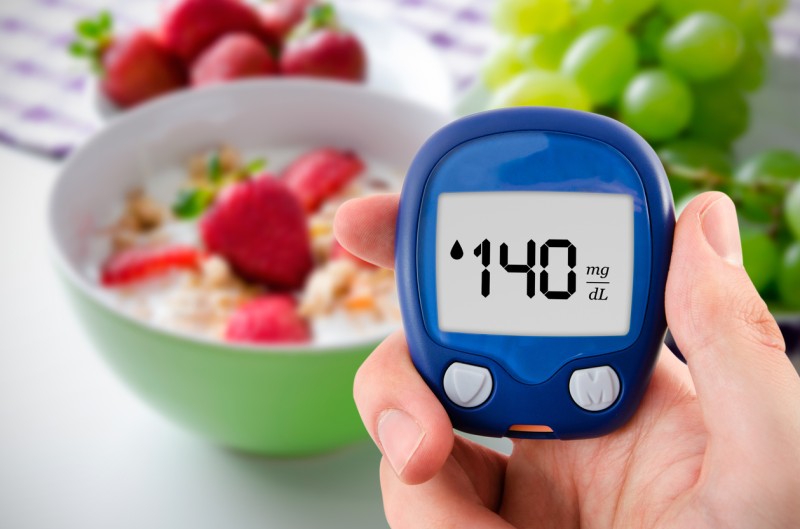Avoiding Spiritual Hypoglycemia
by Courtney Houghton - July 31, 2018
I’ve learned spiritual lessons from my own struggle with type 1 diabetes.

On July 23, 2014, I was diagnosed with type 1 diabetes, and checking my blood sugar became the No. 1 way I stayed healthy.
Why? Well, type 1 diabetes is an autoimmune disease in which the pancreas no longer produces the hormone insulin. Insulin is the bridge that carries nutrients from the food we eat into our blood cells for energy and other necessary functions. Without insulin, sugar will accumulate in the bloodstream instead of being used or stored for energy.
Since type 1 diabetics don’t produce their own insulin, they have to give themselves insulin through individual injections or an insulin pump. This is where checking one’s blood sugar becomes vital.
Lessons for spiritual health
The apostle Paul wrote, “Bodily exercise profits a little, but godliness is profitable for all things, having promise of the life that now is and of that which is to come” (1 Timothy 4:8). Physical health is important, but godliness is profitable in all things, and it should be at the core of our lives.
I have found lessons for my spiritual life in my physical health challenges.
Consider the example of checking one’s blood sugar. Simply put, hypoglycemia is low blood sugar, and hyperglycemia is high blood sugar. When one’s blood sugar remains too high or too low for extended periods, it puts a strain on the rest of one’s body. When one’s blood sugar is low, the body is striving for those sugar nutrients but can’t find them and thus can’t function properly.
There can be a parallel—“spiritual hypoglycemia,” if you will—that puts a strain on our spiritual life.
When we sin, our spiritual blood sugar falls into hypoglycemia, and our relationship with God begins to suffer.
How can we avoid falling into spiritual hypoglycemia and stay spiritually healthy?
1. Check your blood sugar often.
On average, I check my blood sugar eight to 10 times a day using a glucometer, a blood glucose meter. This tells me if my blood sugar is low, high or normal. Depending on what reading I receive, I then make any corrections that may be needed.
Spiritually, we have God’s Holy Spirit and His Word to instruct us on changes we need to make.
When we approach Passover, we all check our spiritual blood sugar. But we shouldn’t do this only once a year. We should be continually checking ourselves throughout the year. When we go through the examination process, God’s Spirit acts as our glucose meter and reveals to us the areas we need to grow in. It’s not always easy seeing where we have fallen short, but it is encouraging to see the areas in which we’ve grown since our last check (Psalm 139:23-24).
After we’ve checked our blood sugar and see the areas that need improvement, the next step is to create a game plan of how we are going to correct the sin we have found.
2. Correct accordingly.
My glucometer tells me what actions I have to take next. For example, if my blood sugar is high, I need to take more insulin to move that extra sugar from my bloodstream into the cells. If my blood sugar is low, I need to eat something to raise my blood sugar levels back into normal range.
Spiritually, we must do the same thing. When we check our spiritual blood sugar, we notice the areas in which we are falling short. The key is that when we see sin in our lives, we must correct it immediately. When our blood sugar is high or low, we can’t wait around and deal with it later. It’s something we have to handle right away, or there will be serious consequences.
The longer we knowingly let sin linger in our life, the further away we will drift from God. Once we notice sin in our life, we must repent, ask for forgiveness from God and then, with His help, create an action plan for correcting that sin for good!
But we mustn’t give up when we don’t overcome a sin immediately. It is a process. There are some weeks I just can’t seem to keep my blood sugar up, and it takes a lot of trial and error to figure out what I need to do to fix it. But I can’t stop trying.
With God’s guidance, when we open our hearts to examination, we will see not only our faults but where He has helped us grow. Regular Bible study, fasting, meditation and prayer are some of the greatest ways to overcome and avoid spiritual hypoglycemia.
3. Be consistent.
The last step in avoiding spiritual hypoglycemia is consistency. If I only checked my blood sugar every few weeks, I would never be healthy. I would be putting myself through an endless cycle of ups and downs physically and emotionally. By keeping track of my blood sugar, I am able to look back at my readings three months at a time. Periodically, I look back over all my readings and look for any changes that may need to be made. Sometimes there is a lot of correction to be made, and other times things are going smoothly with no corrections needed.
Spiritually, this applies just the same. As Christians, we can’t only look at our spiritual lives once a year. We have to keep coming back regularly to continue the growth process. Our goal is to keep our focus on becoming more like Christ and monitoring where we have been and how we have changed over time.
Checking our spiritual blood sugar is vital to our relationship with God. It will reveal not only our faults but our accomplishments. It will encourage us to keep pushing forward and enduring until the end (James 1:2-5). We will build our relationship with God and feel “healthier” than ever before.
Type 1 diabetes has been an incredible learning experience and has taught me more than I could have ever imagined when this whole journey began. It’s a reminder of our need as Christians to keep pushing forward and checking our spiritual blood sugar!
Continue Reading

The Greatest “Choose Your Own Adventure”: How Will You Choose?
by Eddie Foster - July 17, 2018

When Friends Disappoint You
by Reggie Sinon - April 17, 2018
